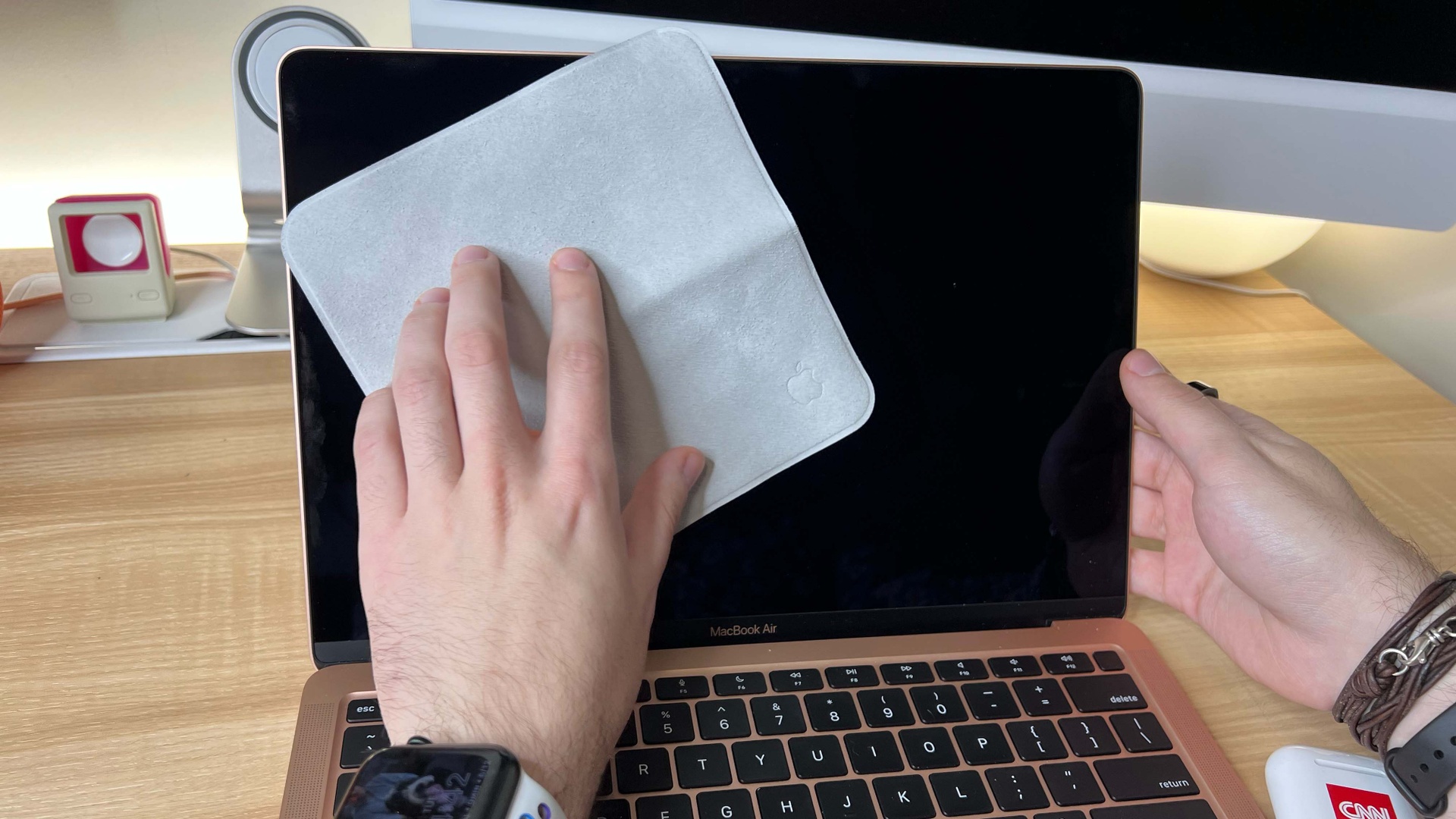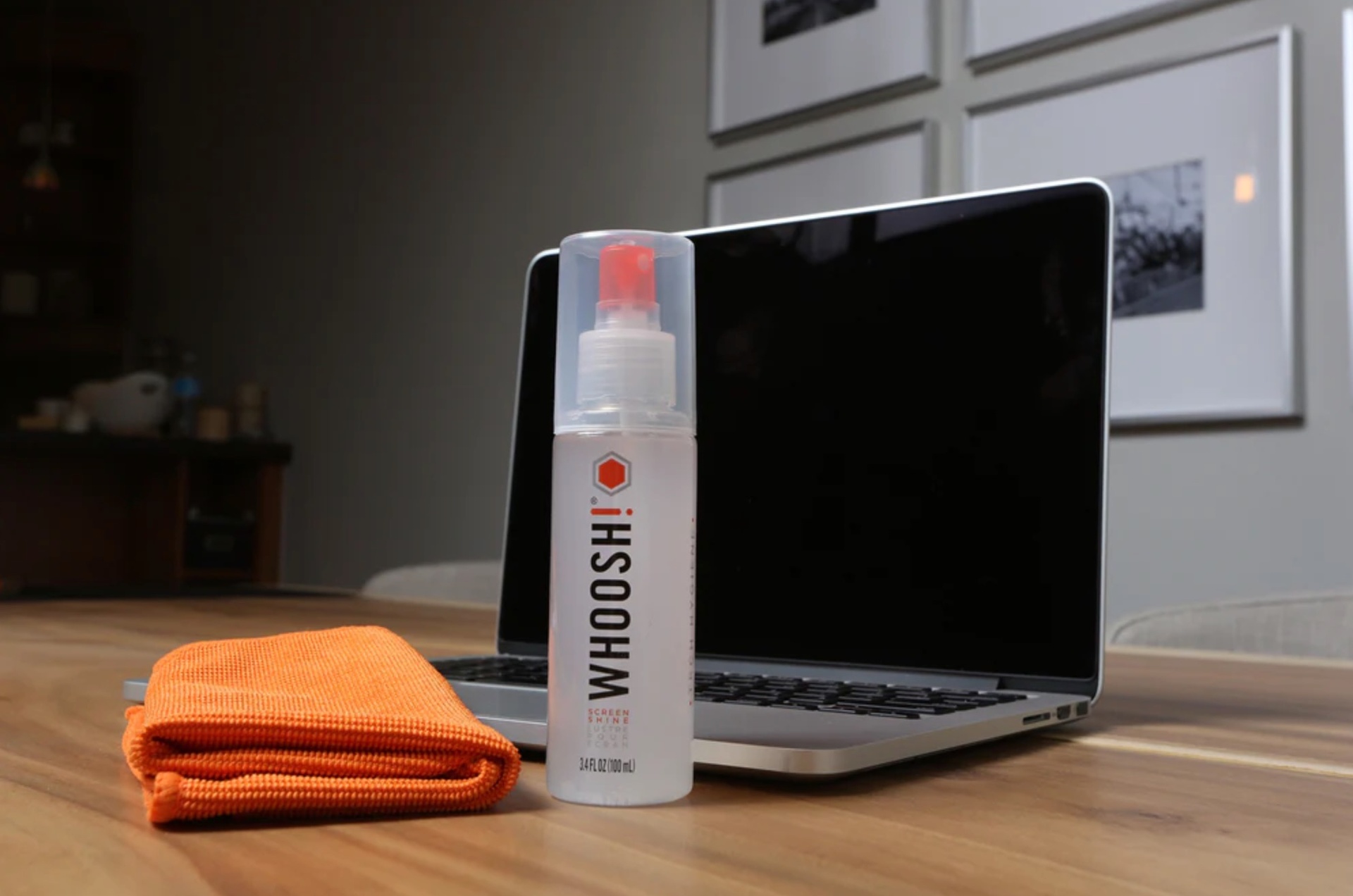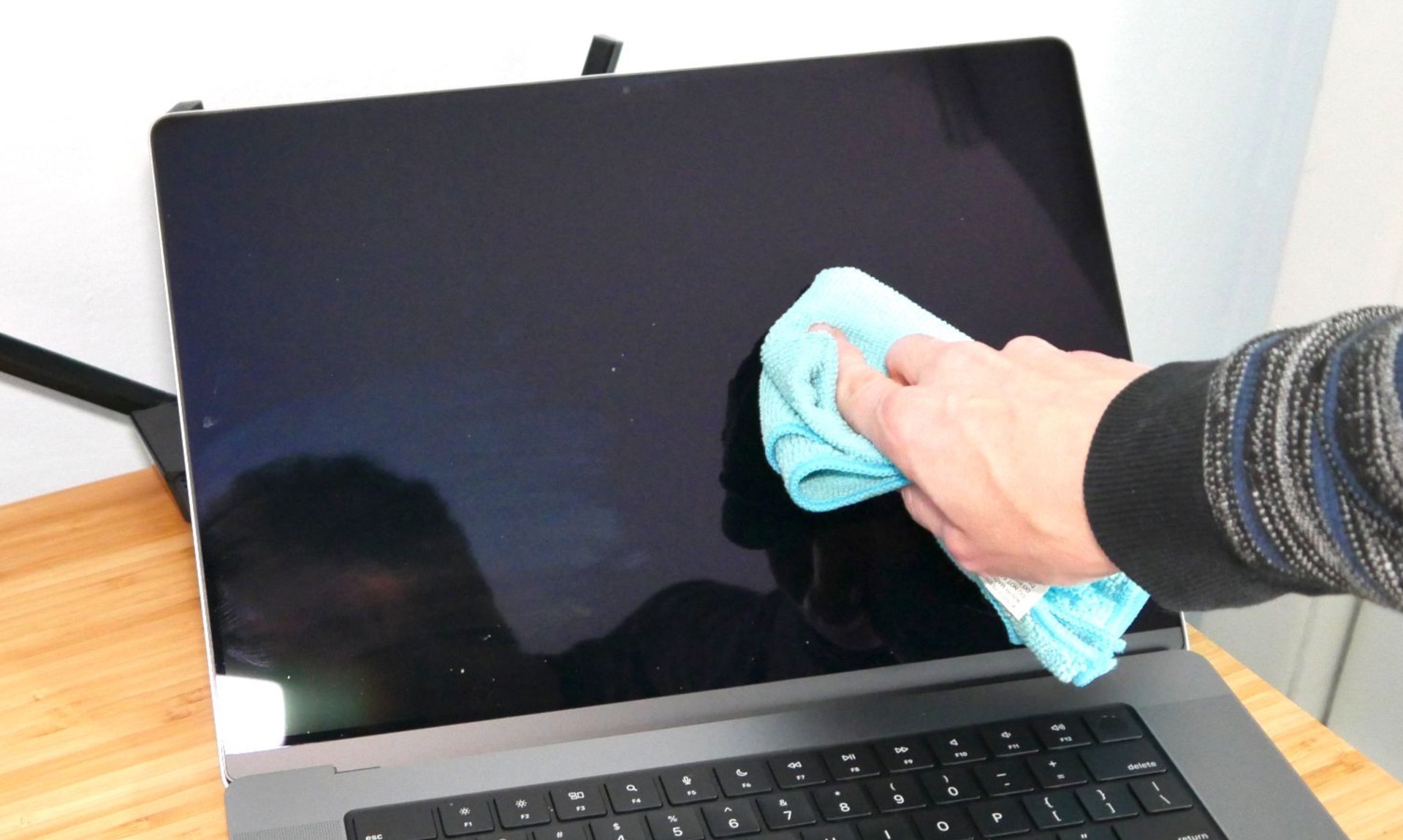When cleaning the screen of a TV, Computer or Laptop, users need to pay attention to some details to ensure safety and avoid damage to the device.

Computer monitors and TVs are among the technological devices that need regular cleaning. Dirt, bacteria and fingerprints will stick to the surface after a long time, affecting visibility and usage experience.
Like many other devices, computer monitors and TVs need to be handled with care due to the use of chemically sensitive materials. Here are the details users should pay attention to when cleaning TVs and computer screens.
Turn off the device before cleaning
Users should power off the TV and computer monitor before cleaning to avoid problems, such as short circuit or electric shock. Also, wait for the device to cool down before unplugging it.
Shutdown also ensures that users don’t accidentally touch icons or buttons (if using a touchscreen). When the power is turned off, the screen is only black, so it’s easier to see dirt.
If possible, users should move the screen away from nearby devices, especially if they are powered on to avoid dropping or spilling liquids when handling.
Types of cleaning solutions to avoid
Some cleaners are labeled multi-purpose or multi-surface cleaner, but not all can be used on electronic screens. The reason is because the part is very sensitive to harsh chemicals, which are often found in some cleaning agents.
With cleaners, avoid using products that are high in acetone, alcohol, ammonia, hydrogen peroxide and similar chemicals as they are highly corrosive and can damage most screens.

If a cleaning solution is required, water is the best option in most cases. If possible, use distilled water as tap water can contain some minerals that may scratch the screen.
For stubborn stains, users can combine distilled water with white vinegar in equal proportions, or use special cleaning products for electronic screens such as Whoosh.
Do not spray liquid directly on the TV or computer screen because the solution can flow down, get inside, causing electrical circuit problems. Instead, dab a small amount of detergent on the washcloth.
Use the right wipes
The lens box usually comes with a cleaning cloth. This is the type of cloth that should be used to clean computer or TV screens. If the device comes with specialized towels from the manufacturer, use them for maximum safety.
If not included, users need to find towels with soft, microfiber and lint-free fabrics. Do not use toilet paper, paper towels because they can scratch the screen. Similarly, avoid towels, large fiber rags, or shirt sleeves.
Do not use strong force to clean the screen
Computer and TV screens are often coated with anti-glare or some special layer, so they are very sensitive. Even when using distilled water or a suitable cleaner, the user should not apply strong force to the screen when cleaning. That can cause the anti-glare layer or sensitive material to peel off, causing damage that is difficult to repair.
Gently wipe the screen with a dry cloth in a circular motion. If only small dust particles need to be removed, this is sufficient and no detergent is required.

In case you need to deal with stubborn stains, prepare several towels, one to dry and one soaked in water (or cleaning solution). Gently wring out the wet cloth and wipe over the screen, then wipe again with a dry cloth to remove water particles, which can accumulate moisture.
Allow extra time for the screen to dry completely
If cleaning the screen with water or detergent, wait about 30 minutes after cleaning is complete for the screen to dry completely before plugging in the power. This reduces the risk of water particles affecting display quality.
Users may be nervous when buying detergents. In fact, not all screens use the same material. Therefore, please refer to the manufacturer’s website to know how to clean and choose the most suitable detergent.
Hopefully the above things will help you have more experience to clean the screens of your electronic devices safely!